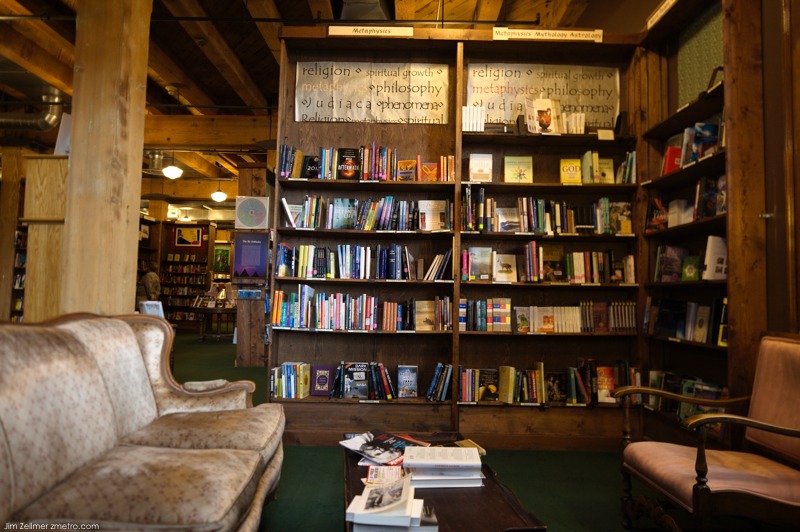In his view (and in ours, too), way too many people hear about the huge reported reserves of Saudi Arabia and other Middle Eastern countries, and assume that this oil is really available for extraction. Matt makes the point that these reserves, and many others around the world, have not been audited. In fact, they seem to be political numbers, so we cannot depend on them. He also points out that we also do not have detail data with respect to historical oil extraction from individual fields in the Middle East, so we really do not know how close to decline Saudi Arabia and other Middle Eastern countries really are.
In 2005, Matt Simmons wrote a book called Twilight in the Desert. In it, he summarized what he learned about Saudi Arabian oil production by reading 200 academic papers. He concluded from his analysis that the oil extraction techniques being used there were techniques that one might use if the fields were quite depleted. Because of this, he doubted that we should believe stories that Saudi oil production can be greatly expanded. Instead, he raised the possibility that in the not too distant future, Saudi oil production will suddenly decline. Matt’s research underlying the book was no doubt behind his concern that oil reserves and oil production rates are not audited.
Another thing Matt is known for is his educational graphics about “what is really going on” with respect to oil extraction. For example, in his talk at the 2009 ASPO–USA conference, he shows this graphic of the amount of conventional oil discovered by decade.
Category: Entrepreneurs
The End of the Guidebook
I am in Tate Modern with no Baedeker. Nor Lonely Planet, Rough Guide, Time Out or any other type of guidebook. For Lucy Honeychurch, heroine of EM Forster’s Room with a View, this would be a desperate situation. Without a guidebook in Florence’s Santa Croce, she is bereft, close to tears, unsure what she should be looking at, unable to recall any of the building’s history and upset at having no one to tell her which of the sculptures and frescoes is most beautiful.
I, however, am supremely confident. I may not have a guidebook but I am equipped with “Google Goggles”, and thus have at my fingertips more information than exists in any guidebook ever written – perhaps more even than the combined wisdom of all guidebooks ever written.
Disappointingly, Google Goggles are not physical goggles, or glasses of any kind, but an app that will soon become available for iPhones and already works with Android smartphones. Put simply, whereas Google lets you search the internet using keywords, this allows you to search with an image. You use the phone’s camera to take a photo of something – a church, a monument, a painting or a sculpture – then wait a few seconds for the image-recognition software to scan it, before being offered a full range of information about it. The implications for travel are huge.
The Style of an Elegant Bookstore
Portland Cello Project

The fabulous Portland Cello Project performed in Madison for the first time this week at the High Noon Saloon. More photos, here.
A great evening at a bargain price, $10 per ticket. A brief iPhone 4 video is here.
Lunch with Luca Cordero di Montezemolo
Screaming down the home straight of Ferrari’s test track at 200kmph an hour in a classic red 458 Italia, I suddenly don’t feel like lunch. The Fiorano track near Bologna in central Italy is, at 3km, not long. But, partly in an attempt to impress the test driver next to me with some fast cornering, I feel as if I have left part of my stomach on one of its hairpin bends. Matters fail to improve as, in heavy fog untypical of early summer, I take the car off the track and, rather more slowly, on to the winding roads of the Apennines, heading for Ferrari HQ in nearby Maranello.
I am still spinning slightly when we pull into the car park just before the company’s elegant and aristocratic chairman, Luca Cordero di Montezemolo, who somewhat incongruously arrives in a small Fiat. He explains that his journey from Rome has been a nightmare as fog diverted his helicopter and forced him to take trains and cars – hence the Fiat. Nevertheless he appears in characteristically enthusiastic mood. “I’ve just been to a conference at the Vatican [on the financial crisis]. Fantastic,” he explains. “Fantastic” is a word Montezemolo uses a lot. Ferrari is “fantastic”, Italian food is “fantastic”, his new high-speed train company, NTV, is “fantastic”, as is the 458 Italia I have been driving.
On my way out he hands me a white postcard. “This is what I give to all new employees at Ferrari,” he says. Looking at it in a Ferrari 599 on the way back to Milan, it looks to me like the perfect credo for Montezemolo. It starts: “The real secret of success is enthusiasm. You can do anything if you have enthusiasm … With it there is accomplishment. Without it there are only alibis.”
Clusty Search: Luca Cordero di Montezemolo
THE VELLUVIAL MATRIX
Half a century ago, medicine was neither costly nor effective. Since then, however, science has combatted our ignorance. It has enumerated and identified, according to the international disease-classification system, more than 13,600 diagnoses—13,600 different ways our bodies can fail. And for each one we’ve discovered beneficial remedies—remedies that can reduce suffering, extend lives, and sometimes stop a disease altogether. But those remedies now include more than six thousand drugs and four thousand medical and surgical procedures. Our job in medicine is to make sure that all of this capability is deployed, town by town, in the right way at the right time, without harm or waste of resources, for every person alive. And we’re struggling. There is no industry in the world with 13,600 different service lines to deliver.
It should be no wonder that you have not mastered the understanding of them all. No one ever will. That’s why we as doctors and scientists have become ever more finely specialized. If I can’t handle 13,600 diagnoses, well, maybe there are fifty that I can handle—or just one that I might focus on in my research. The result, however, is that we find ourselves to be specialists, worried almost exclusively about our particular niche, and not the larger question of whether we as a group are making the whole system of care better for people. I think we were fooled by penicillin. When penicillin was discovered, in 1929, it suggested that treatment of disease could be simple—an injection that could miraculously cure a breathtaking range of infectious diseases. Maybe there’d be an injection for cancer and another one for heart disease. It made us believe that discovery was the only hard part. Execution would be easy.
America’s Car-Mart: Bentonville’s Secret Sauce Makers
The Financial Investigator: Most every day at 802 Southeast Plaza Avenue in Bentonville, Arkansas appears to be a pretty good one.
That’s because that address houses the headquarters of Americas Car-Mart, an auto retailer that has found the sweet spot, the intersection where a corporation’s business model meets consumer demand and the net income flows like cool, clear water.
Focusing exclusively on the sub-prime auto-buyer, their clean and efficiently-organized used-car lots throughout the south-central and southwest regions offer a stark contrast to the traditionally dodgy experience of buying a used-car; no one at any Americas Car-Mart locale is likely to be mistaken for the Kurt Russell character in Used Cars. The staff is friendly and well-turned out, there is a wide variety of cars, trucks and vans to choose from, the business offices are clean and air-conditioned and, perhaps best of all, the word “no” just doesn’t appear to be used all that often.
From an analytical standpoint, the business model appears to be simplicity itself.
Ukraine Agriculture: Investment climate will determine yield
Amid all the doom and gloom, one sector in the country’s economy has a bright future and promises high yields.
Despite a deep recession that sent gross domestic product plunging 15 per cent last year, some budding domestic agribusinesses reported double-digit growth.
Agriculture was one of the few economic sectors to grow, albeit a small 0.2 per cent rise.
But to see the real potential, one must look further ahead. Global demand for food is expected to surge in coming decades. And Ukraine is well positioned to benefit.
With its rich black soil, favourable climate and proximity to markets, experts say the country could go far beyond regaining its position as the breadbasket of Europe.
“Ukraine is already among the top five grain exporters in the world,” says Andriy Yarmak, an agribusiness expert. “With investment, it could double its recent annual harvests and “become one of the top exporters of meat in about 10-15 years”.
Interview: Jung Garden Center’s Dick Zondag
MY grandfather started our mail-order company 100 years ago. In the early 1950s, customers were driving to Randolph, northeast of Madison, to see what they were purchasing by mail from us, and my dad saw an opportunity to start a local garden center.
One of my first jobs was to take the orders for shrubs from the garden center to a storage area and to take the shrubs to the customer. I was 11. I also hoed the weeds and detassled corn.
In the 1990s, the two branches of our family split the business. The Jungs received Jung Seed Genetics, which sells agronomic seeds to farmers, and the Zondags got the catalog division and the garden centers.
A worm farm rewrites the start-up rules
The drive up to Coalmont, Grundy County, Tennessee, winds through beautiful countryside – hardwood forests, open meadows, meandering creeks. The land also bears the scars of decades of poverty – collapsed chicken houses, signs advertising “wood for sale”, a faded placard taped to a mailbox printed with the words “Indoor yard sale”. The roadsides are littered with posters for forthcoming local elections; around here, a $50,000 salary as county clerk makes a person part of the economic elite.
This is hardly Silicon Valley or Wall Street, but I am in Coalmont to interview a captain of industry, one of the county’s biggest employers, someone you might even call a visionary – the owner of what must be the world’s only vertically integrated worm factory. Silver Bait LLC produces fishing worms by the millions. But that’s only the beginning of what it produces. The walls of the 170,000sq ft worm factory are made of giant concrete blocks that the company produces onsite. Likewise, the pre-stressed concrete columns and beams in the building. Silver Bait also produces its own corrugated metal roofing on a machine the company’s founder, Bruno Durant, designed and built.
French-born, 50-year-old Durant grows 300 acres of corn here, to feed his worms, and he harvests it with second-hand machinery he renovated in his onsite equipment- maintenance building. He invented his own machinery to harvest the worms and he is about to complete work on a device that will mechanise most of the rest of the worm-culture process.
He’s also about to put in place a full-scale packing line (designed by himself and built in his onsite machine shop). The worms are dispatched for sale in small plastic containers made in his onsite injection-moulding machine and are delivered to his customers – bait wholesalers across the eastern US – in his company’s refrigerated trucks. He does purchase peat from Canada as the growing medium for his worms. But that’s about all he buys in.
